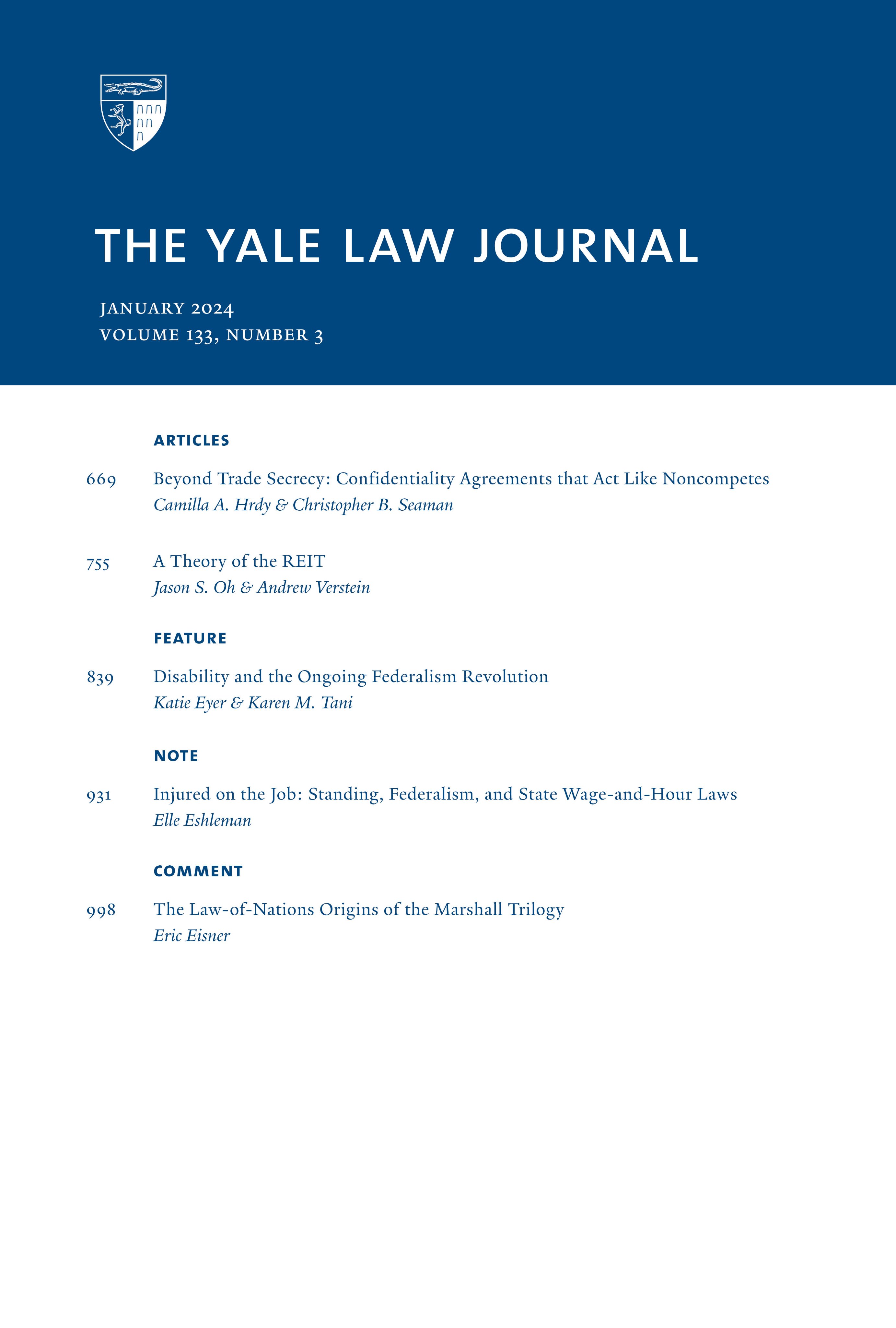莱德贝特在国会:狭义立法推翻的限制
IF 5.2
1区 社会学
Q1 LAW
引用次数: 3
摘要
在莱德贝特诉固特异轮胎橡胶公司(Ledbetter v. Goodyear Tire & Rubber Co.)一案中,最高法院裁定,根据《教育法》第七章,雇员不得以薪酬歧视为由起诉雇主。原告莉莉·莱德贝特(Lilly Ledbetter)在固特异公司工作了20年,在工作期间,由于上司对她的性别给予了负面评价,她的加薪幅度一再低于男性同事在古德伊尔工作结束时,莱德贝特的薪水明显低于其他男性同事。”然而,最高法院认为莱德贝特不能获得赔偿,因为她没有遵守平等就业机会委员会(EEOC)的指控条款,该条款要求原告在歧视行为发生后的180天内向平等就业机会委员会提出就业歧视索赔,然后才能根据第七章提起诉讼。法院认为,只有最初的薪酬设定决定本身构成了独立的歧视行为;随后的薪水只是“不利影响”,缺乏建立差别待遇所需的意图。本文章由计算机程序翻译,如有差异,请以英文原文为准。
Ledbetter in Congress: The Limits of a Narrow Legislative Override
In Ledbetter v. Goodyear Tire & Rubber Co., the Supreme Court held that an employee was barred from suing her employer for pay discrimination under Title VII. The plaintiff, Lilly Ledbetter, was a twenty-year employee of Goodyear who, over the course of her employment, repeatedly received lower raises than her male counterparts because supervisors had given her negative evaluations due to her sex.2 By the end of her employment at Goodyear, Ledbetter's salary was significantly lower than those of any of her male peers.' The Supreme Court, however, held that Ledbetter could not recover because she failed to comply with the Equal Employment Opportunity Commission (EEOC) charge provision, which requires that plaintiffs file claims of employment discrimination with the EEOC within 18o days of the discriminatory act before they may sue under Title VII.4 The Court held that only the initial pay-setting decisions themselves constituted discrete acts of discrimination; subsequent paychecks were merely "adverse effects" lacking the intent required to establish disparate treatment.'
求助全文
通过发布文献求助,成功后即可免费获取论文全文。
去求助
来源期刊

Yale Law Journal
LAW-
CiteScore
4.50
自引率
6.20%
发文量
0
期刊介绍:
The Yale Law Journal Online is the online companion to The Yale Law Journal. It replaces The Pocket Part, which was the first such companion to be published by a leading law review. YLJ Online will continue The Pocket Part"s mission of augmenting the scholarship printed in The Yale Law Journal by providing original Essays, legal commentaries, responses to articles printed in the Journal, podcast and iTunes University recordings of various pieces, and other works by both established and emerging academics and practitioners.
 求助内容:
求助内容: 应助结果提醒方式:
应助结果提醒方式:


